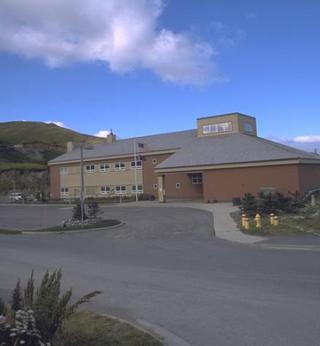Council Gets Update on Capital Projects, Rejects Utilities Ordinance

Wednesday, July 27 2011
The summer construction season means busy times for the Department of Public Works, as a presentation at last night’s city council meeting made clear.
The bulk of the meeting was devoted to an update on capital projects. Public Works Director Nancy Peterson announced that the city had completed three different projects since the last update. The powerhouse expansion project, the third phase of the Geographic Information System – or GIS – project, and the East Point road blow project have all been wrapped up. Now, the city is busy with other work. The installation of a third engine at the powerhouse began on July 12, and construction at the new 8-plex on Loop Road continues, despite some delays due to the discovery of contaminated materials and excess water on the property. Work on the Illulaq Lake and Delta Way Drainage projects is already factoring in contaminated materials.
Work on the Carl E. Moses Small Boat Harbor road and utility project is complete, but there have been some delays on the construction of the inner harbor. Council member Zac Schasteen asked if these delays could have a big impact on the project’s timeline.
Only one piece of legislation was considered last night, but it triggered surprisingly heated debate. A modification to the utilities code failed after acceptable language could not be agreed upon. The ordinance would have standardized already existing policy regarding how the city bills a customer when their water or electric meters fail and how the city handles service upgrades.
There was much confusion over whether the Title X modifications would affect rebates for primary extensions or secondary extensions. Council member Dick Peck introduced an amendment that would have gotten rid of language that would codify current practice involving upgrades. Right now, the city only provides rebates for work on primary extensions, not any other electrical work on a customer’s property, as Mayor Shirley Marquardt described.
Some council members, like Katherine McGlashan, did not see how this amendment would have a practical impact on how the city handles utilities. While Public Utilities Director Dan Winters did confirm this was the case, extended disagreement continued about the ordinance among council members, and confusion over language caused the mayor to call a break.
During that break, a quorum of city council members continued to discuss the ordinance despite not being on regular meeting time.
Ultimately, both the amendment to the ordinance and the ordinance itself failed on split votes.
Council wrapped up in an unannounced executive session to discuss where things stand with the Department of Justice and the Environmental Protection Agency on litigation over the wastewater treatment plant.
All council members were present for the meeting, except Roger Rowland, who was excused.



